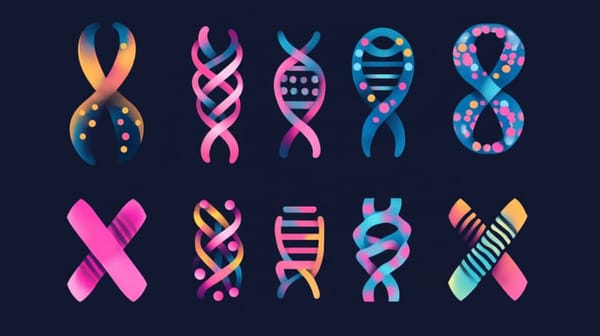Health is different for each person, and it changes all the time. What happens in your body when you eat a little or a lot of food can be different every day. This is because of insulin, a hormone that only lasts a few minutes in our body and helps control our sugar levels. Insulin doesn't just react to the food we eat; other things affect it too.
When we talk about autophagy, which is how our body cleans and fixes its cells, it's related to something called mTOR levels. These levels change a lot and are different for everyone. That's why it's hard to find one clear answer about how our bodies work with food and health. Even if we did find an exact answer, it might not be right for you because it could be based on someone else's body at a different time.
It's also important to know that stress can change how our body deals with sugar and insulin. When we're stressed, our body makes a hormone called cortisol, and this can make our sugar and insulin levels go up. This shows how our body's reaction to food and stress is complicated and why everyone needs to think about their own health in their own way. It's also important to remember that during a fast, a lot of rules change, especially involving cortisol. Without liver glycogen, cortisol plays a slightly different role.
Examining actual calorie numbers when it comes to autophagy
A lot of research on fasting has been done by the Buchinger Wilhelmi clinic. In their studies, people still see health benefits from fasting even when they eat up to 250 calories a day and do moderate exercise. When fasting, your body gets energy from stored fat. At the same time, it uses a process called autophagy to get important building blocks, like amino acids, from itself to make necessary proteins. The less food you eat, the more your body relies on autophagy to get these parts. That's why drinking coffee or tea, which doesn't have protein, fat, or a lot of carbs, probably doesn't negatively affect autophagy. But remember, everyone's body is different. How strictly someone needs to fast to get the most benefit can change from person to person.
Bulletproof coffee is a popular drink for people who are fasting but still want a bit of energy. It's a mix of coffee, butter, and sometimes a type of oil called MCT oil. The idea is that even though it has calories (mostly from fats), it still keeps you in a sort of fasted state. This is because it doesn't have carbs or protein, just fats, and fats don't raise your insulin levels much. So, the thinking goes, you can have this kind of coffee and still get some of the benefits of fasting, like burning fat for energy. But the exact number of calories you can have without breaking your fast can vary from person to person. Some say a little bit of calories, like what's in bulletproof coffee, is okay, while others believe in sticking to zero calories to stay in a true fasted state. The question arises, will stimulation of the digestive system happen? Similar to the act of chewing stimulating digestive juices.
Things that Stop Autophagy
Autophagy, a cellular process vital for maintaining health, can be halted by several factors, including dietary components and hormonal changes. Glucose and protein intake notably suppress autophagy by activating the mTOR pathway, a key cellular growth regulator. When consumed, they trigger insulin release, which in turn activates mTOR, inhibiting autophagy. Cortisol, the stress hormone, also plays a role in hindering this process, likely due to its effects on metabolic pathways. Additionally, the mere act of eating, irrespective of the macronutrient composition, can temporarily pause autophagy. Interestingly, fats have the least effect on insulin and thus, are the least suppressive to autophagy among major macronutrients.

When I wrote about using coffee earlier, I didn't go too deeply into the cortisol effects. We know that caffeine stimulates cortisol release. But it's also an autophagy inducer? Things can get very complicated, but to keep things simple. Cortisol release earlier on in the fast is fine. But as the dry fast continues past day 3, cortisol levels skyrocket. You want to be ahead of this jump by stopping exogenous cortisol stimulants as soon as possible (in this case I use 36 hours as a marker).
HPA axis and Cortisol release
Stress, whether it's from your body or your mind, really affects your hormones. Just like how you blush when you're embarrassed or freeze up when you're scared, your feelings can cause physical changes. When you're mentally stressed, your body reacts in a big way. It starts a process (called the HPA axis) that makes a hormone named cortisol. This hormone makes your liver put out a lot of sugar into your blood, like it's getting ready to run away or fight. This sugar boost then makes your body produce more insulin. And this can happen even if you haven't eaten for a long time. In fact, this response can be strong enough to stop ketosis, which is when your body burns fat for energy instead of sugar.
Things that Promote Autophagy
Promoting autophagy, a crucial cellular cleanup process, involves several factors and lifestyle choices. Central to this is AMPK (AMP-activated protein kinase) activation, a cellular energy sensor that stimulates autophagy when activated. Caloric restriction plays a vital role; lower calorie intake can enhance autophagy. Additionally, an individual's health state significantly influences autophagy efficacy. Those with poorer health may need stricter adherence to autophagy-promoting practices. Regular exercise is another potent stimulator of autophagy, enhancing cellular energy demands and activating related pathways. Prolonged fasting periods are also effective, as they reduce insulin levels and stimulate energy-deprivation responses, including autophagy. Lastly, managing insulin levels through diet and lifestyle is crucial, as lower insulin levels are generally associated with increased autophagic activity. Together, these elements form a comprehensive approach to promoting autophagy for improved health and longevity. GIP plays a big role, and exploring what foods trigger it more can also provide a lot of clues.
GIP Response to Carbohydrates vs Fats
We already know that high protein levels affect MTOR and inhibit autophagy, but what about fats and carbs? GIP (Glucose-dependent Insulinotropic Polypeptide) is a hormone produced in the small intestine that amplifies insulin's effect when food is ingested. This interaction is crucial as insulin levels are inversely related to autophagy.
Strong Stimulus: Carbohydrates, especially simple sugars and refined carbs, are known to be strong stimulators of GIP secretion. When carbohydrates are consumed, they are quickly broken down into glucose, leading to a rapid increase in blood glucose levels. This spike in glucose is a potent trigger for GIP release.
Moderate Stimulus: Fats also stimulate GIP release but typically to a lesser extent than carbohydrates. The effect of fat on GIP is more prolonged but less intense compared to the immediate and sharp response elicited by carbohydrates.
The Role of AMPK in Promoting Autophagy
AMPK (AMP-activated protein kinase) is a key player in promoting autophagy. It's activated by low-energy states, such as during exercise or fasting, and works in opposition to mTOR. AMPK activation signals the need for cellular energy conservation and recycling, thereby stimulating autophagy.
What does this mean for supplements?
Lots of things. I just wrote a post about how coffee can help you with dry fasting. I explain how it's an autophagy stimulator and free fatty acid releasor. You can introduce many shortcuts and hacks that may make things a little more complicated to track, but the beauty lies in flexibility. For example, I would not use NMN or NR supplements during a fast because of their ability to spike NAD+ and energy levels. We want to keep the body in the low-energy state mentioned above. Of course, one could argue by looking at studies that show NMN raising AMPK levels that you should use it during fasting. But you have to keep in mind there are studies showing the opposite effects too. There are many moving pieces and specifically "hot" anti-aging supplements have way too little research. A clue is found in this paper:
suggesting that NAD+ homeostasis is required for the maintenance of the autophagic flux. According to the results we obtained and those published by others (Fig. S10D) (Lee et al., 2008; Ou et al., 2014), we think that a conceivable molecular link between NAD+ synthesis and autophagic activation is the Sirt family proteins because NAD+ works as a critical coenzyme of Sirt deacetylases, and Sirt has been confirmed to have a role in activating autophagy. Although it is currently unclear why adding NMN cannot restore the autophagic flux in H2O2‐treated cells
Autophagy has so many moving parts, the safest bet is to let your body do the work it has evolved for. I would recommend using these supplements in between dry fasts instead.
Do we have to suffer through low-energy fasting?
Since we know that AMPK gets activated with a low-energy state, does this mean we're forced to suffer through these states during fasting? Yes, especially in the beginning. The start of the fasting process is marked by a huge energy crash. The severity is dependent on diet. If you're coming in from a fat-adapted low carbohydrate diet it will be much easier since your body is already used to burning ketones. The question that floats around is: does being fat-adapted lower the benefits of the induced stress fasting is supposed to provide? Possibly. I do believe that a deeper low-energy situation both increases the benefits of fasting, but also makes it harder to perform. So you have to find your sweet spot based on this information.
As you progress throughout the fast you'll notice that there is this acidotic crisis wall you hit around day 2-3. I think of it like the reef. Once you get through the waves, you are back on open calm waters. What happens during this time? Your body adapts to the free fatty acids floating around and also burns them quickly. You're supposed to get dry fasting "heat" when this happens because if your body has adapted correctly, it's burning these FFAs at high rates. So now, you feel better, but your body has also stabilized energy levels to a better degree. Higher cortisol levels are also helping burn through fat faster and converting it to glucose via gluconeogenesis. At this point, if you're taking in any form of supplemental energy you may be throwing off a LOT of healing. The point? Make sure you stop ingesting anything about 36 hours into the fast, and let your body do its thing.
The Threshold for Autophagy Disruption
While a single calorie might not significantly impact autophagy, the type and amount of calories consumed are critical. For instance, ingesting 10 grams of carbohydrates, especially if one's health is compromised, could interrupt autophagy for a short duration. This interruption duration is influenced by factors such as the individual's metabolic rate, insulin sensitivity, and the specific nutrient profile of the ingested food.



